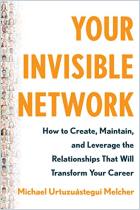
Recommendation
The World Economic Forum estimates that, at the current rate of progress, it will take 217 years for companies to close the gender gap. And even in companies that have achieved a good deal of gender equality, the way women network may make all the difference to their individual success. Connected Commons researchers Inga Carboni, Rob Cross, Aaron Page and Andrew Parker poured through 15 years of research collected from 30 organizations and conducted extensive interviews to show that getting to know and work with people across gender and other divides is the most effective way to reduce bias.
Summary
About the Authors
Connected Commons pioneers research into the impact and importance of organizational networks. Inga Carboni is an associate professor in Organizational Behavior at the College of William & Mary. Rob Cross is Chief Research Scientist for Connected Commons and the Edward A. Madden Professor of Global Business at Babson College. Aaron Page is a research associate at the University of Exeter Business School, where professor Andrew Parker directs the Exeter Centre for Social Networks.



























Comment on this summary